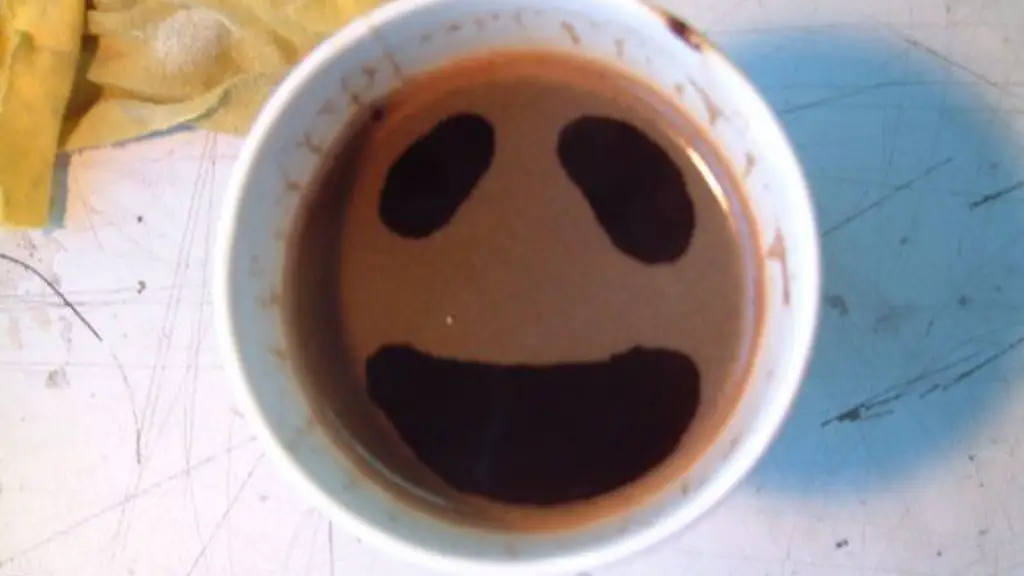Does Drinking Coffee Before Blood Pressure Test Affect Results?
Consuming coffee prior to your blood pressure test is common among many people, especially in the morning. Many of us know that it can increase our morning alertness and help energize us for the day. But does it have any effect on the results of a blood pressure test? This topic has been discussed in many scientific reports and research, some saying that caffeine does not have an effect on blood pressure, while others report that it does in fact have an effect.
Background Information
Caffeine is a stimulant that is found naturally in coffee beans, tea leaves, and a variety of other plant sources. It has a range of effects on the body and is known to increase alertness, heighten mood, and boost energy levels. In recent years, there has been much interest in the possible effect of caffeine on blood pressure and heart rate.
Relevant Data
A 2012 study by the American Heart Association suggested that caffeine may have an impact on blood pressure. The study found that drinking two cups of caffeinated coffee before a blood pressure test led to an average 10 point increase in systolic blood pressure, or the first number in a blood pressure reading.
Researchers suggest that this effect is dose-dependent, meaning smaller doses of caffeine have a smaller effect on blood pressure. Another study published in the International Journal of Cardiology in 2013 found that drinking 250 mg of caffeine before a blood pressure test led to a 4.2 point increase in systolic blood pressure.
Expert Perspectives
According to Professor David Conen, a cardiologist and medical advisor for the American Heart Association, caffeine does have an effect on blood pressure and drinking coffee before a blood pressure test is likely to create an inaccurate reading.
“Caffeine has a direct impact on the cardiovascular system,” he explains, “so drinking coffee before a blood pressure test can affect the results.”
He suggests that people who wish to get accurate results should avoid drinking coffee before having a blood pressure test.
Own Insights and Analysis
From the data, it’s clear that caffeine does have an effect on blood pressure. But how much of an effect it has is debatable. It’s clear that larger doses of caffeine will lead to larger increases in blood pressure readings.
However, it’s important to consider that coffee is not the only source of caffeine. Many energy drinks, sodas, and supplements contain caffeine, and it’s possible that these may have a similar effect on blood pressure.
It’s important to consider the other sources of caffeine when preparing for a blood pressure test. People should avoid any foods or drinks that contain caffeine for at least one hour before having a blood pressure test in order to ensure that the results are as accurate as possible.
How Caffeine Interacts With Medication
Medications, such as those used to treat high blood pressure, often interact with caffeine. It is important, then, to speak to your doctor before having a blood pressure test if you take these medications, as caffeine may interact with the medication and affect the results of the test.
Your doctor can advise you on whether or not to stop taking the medication for the time of the blood pressure test, or if there are any other measures you should take.
The Effect Of Caffeine On Heart Rate
In addition to blood pressure, caffeine has also been found to have an effect on heart rate. A 2018 study published in the Journal of the American Heart Association found that drinking one cup of caffeinated coffee can lead to a 5.9 increase in resting heart rate.
This suggests that caffeine can have an effect on both the heart rate and the blood pressure, so it’s important to consider both when preparing for a blood pressure test.
Potential Long-Term Effects Of Caffeine On Blood Pressure And Heart Rate
In addition to the immediate effect of caffeine on blood pressure and heart rate, there is some evidence to suggest that long-term caffeine consumption can have a negative effect on these two cardiovascular measures.
One 2018 study published in the American Journal of Hypertension found that long-term caffeine consumption can lead to a slight but sustained increase in both systolic and diastolic blood pressure.
The study also found evidence to suggest that long-term caffeine consumption can lead to an increase in resting heart rate.
Measuring Caffeine Intake
It is important to monitor your caffeine intake when preparing for a blood pressure test. Keep track of how much caffeine you’re consuming each day, as this will allow you to better adjust for any potential effects on the blood pressure test.
You should also make a note of any other sources of caffeine that you may be consuming, such as energy drinks, sodas, and supplements. This will help you to gauge the potential effect of caffeine on your blood pressure and heart rate.
Caffeine Consumption Habits And Impact
Caffeine consumption habits can also have an effect on the results of a blood pressure test. Those who are regular caffeine consumers may be more likely to experience higher readings when they have a blood pressure test.
It is important to note, however, that the magnitude of the effect will depend on the amount of caffeine consumed and the frequency with which it is consumed.
Those who consume caffeine irregularly, or consume only moderate amounts, may not experience any notable effect on the blood pressure test. However, those who consume large amounts of caffeine regularly may experience higher readings.
Caffeine And Blood Pressure: The Effects Explained
In conclusion, it is clear that caffeine does have an effect on blood pressure and heart rate. The magnitude of the effect will vary from person to person and depend on a variety of factors including the amount of caffeine consumed and the frequency of consumption.
It is important to be aware of the potential effect of caffeine on a blood pressure test, and to be mindful of your caffeine consumption in the lead up to a test. Keeping track of your caffeine intake can help to ensure that your results are as accurate as possible.


